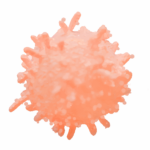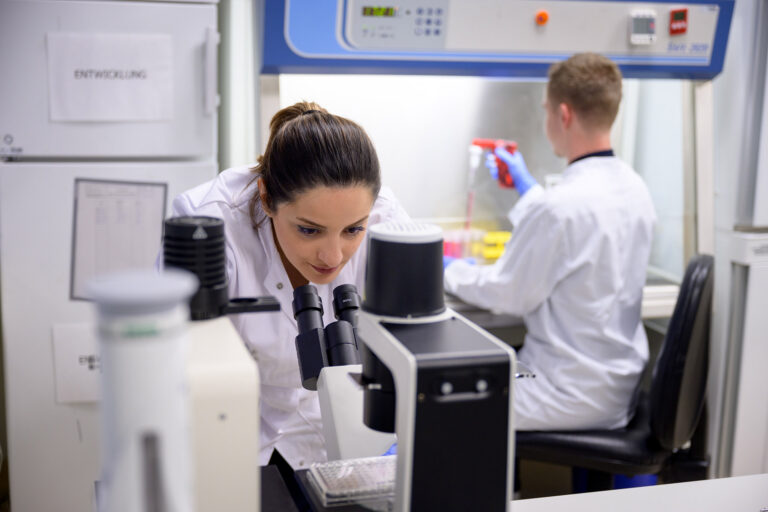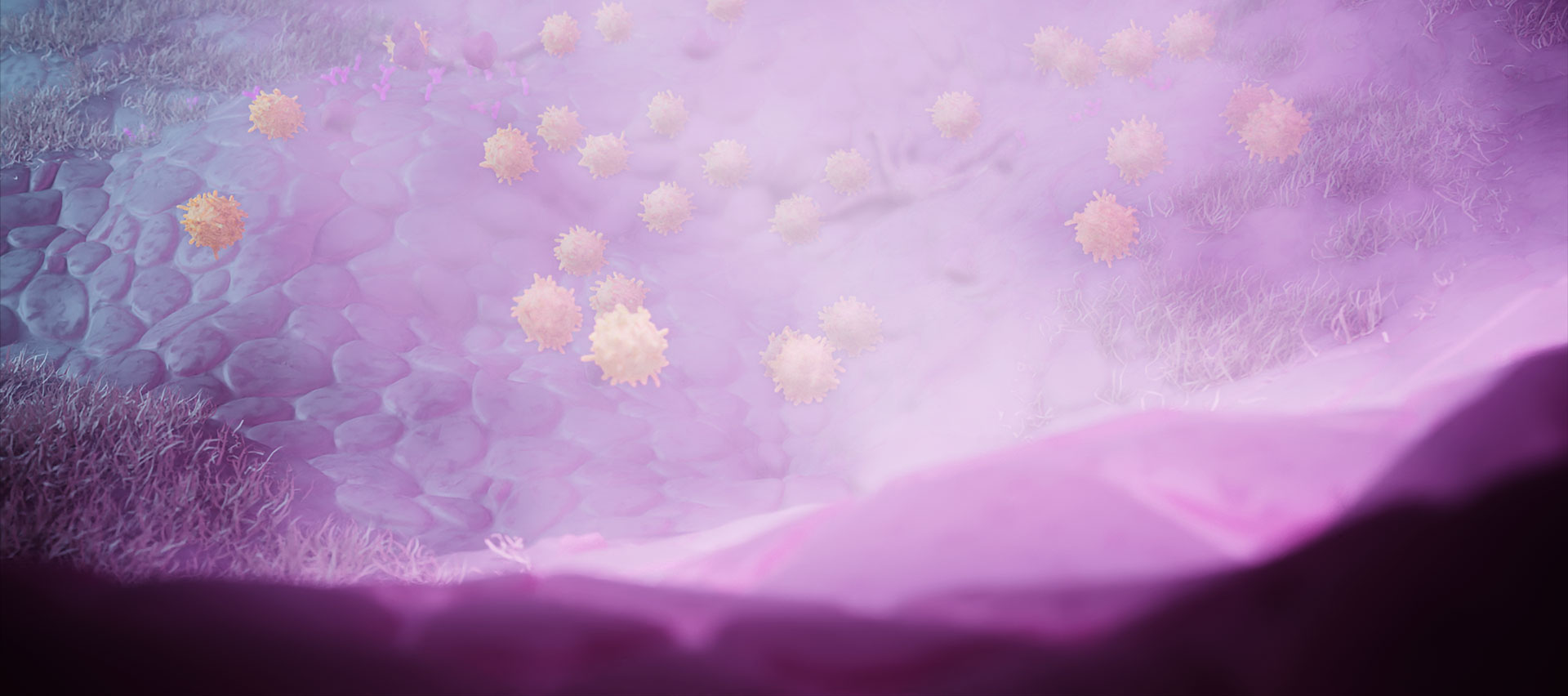The TReAT project aims to achieve greater safety for patients
While the immune system is our body’s main defense mechanism, it can also be our enemy. Just think of how it can attack new organs after transplantation. For this reason, we are sometimes in need of immunosuppressive drugs like Tacrolimus, which enable us to suppress the immune system. Doing so, however, leaves patients prone to life-threatening viral infections.
In the TReAT project, we overcome this challenge by engineering virus-specific T-cell products that can be activated in the presence of Tacrolimus.
1

After taking a blood sample from the patient, we isolate those T-cells capable of fighting the virus.
2
Using the CRISPR-Cas9 technology, we then deactivate the genetic sequence coding for a specific adaptor protein within those cells.
3

The engineered T-cells are then placed back inside the body of the patient. Upon recognizing the virus, each of the T-cells is activated – initiating a focused attack on the invader.
4

The TReAT project aims to achieve greater safety for patients with suppressed immune systems – keeping their viral defenses vigilant at a time of vulnerability.
How to build T-cell warriors?
Virus-specific T-cell warriors can be isolated and expanded from a blood sample. These warriors can then be manufactured in large numbers in the laboratory and eventually returned to the patient to fight the specific virus.
T cell products for adoptive T cell therapy
The TReAT (Tacrolimus-resistant anti-viral T cell Therapy) project has its aim in generating a novel platform for the regeneration of T-cell responses against different viral specificities.
This personalized therapeutic approach of using Tac.-res anti-viral T cell products (Tacrolimus-resistant anti-viral T cell products) can enable the induction of a powerful immune response against viral pathogens that are likely to infect the body while keeping the unwanted and overheated immune response silent under e.g. organ transplantation and autoimmunity.
This is done using an immunosuppressive drug namely tacrolimus. This project will open up new ways of generating custom-build T-cells with specific viral features, which will be scaled up and transferred to the clinics. Clinical development of these warrior T-cells requires a GMP compliant process, which represent the fundament of our T cell products and fortifies their translation to the bedside of patients.



Our Blog
About us
We are an interdisciplinary and cooperative junior group excited to build a new groundwork for patient specific, GMP compliant anti-viral T cell therapeutics. We have extensive knowledge in the field of adoptive anti-viral T cell therapy and we have already generated CMV as well as Sars-Cov-2 specific T cell products for clinical application.
The Amini group is led by Dr. Leila Amini as principle investigator and head of the clinical manufacturing unit at the BeCAT. We are focusing on the generation of various anti-viral T cell products (TCPs).
photography ©HeidiScherm

Your contribution to our research
Here's how you can help us create effective and safe T-cell warriors for patient care.
